Science Discovery Explore, Describe, Explain

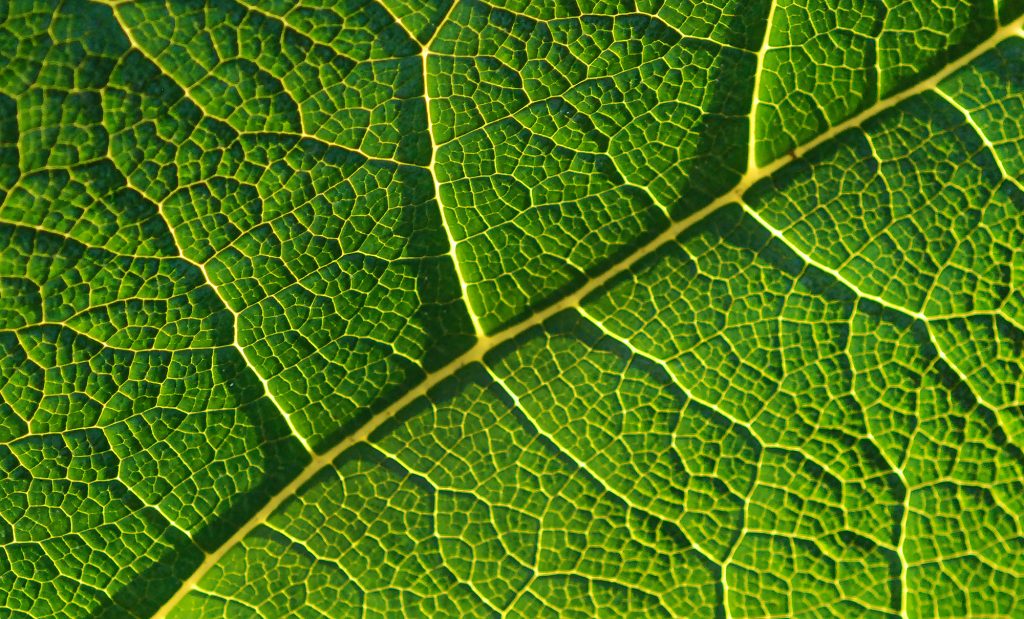
Science Discovery Outcomes
-
Define science and provide examples of science fields.
-
Provide examples of the components of science discovery: exploration, description, and explanation.
-
Explain what a pattern is in nature and provide an example.
What is science?
Take a moment and write down the names of three different science fields in your notes.
hint: you may have taken a few of these courses in high school.
What did you come up with? Common responses include: physics, chemistry, geology, and of course what we are here for, biology. Less common, but correct responses would also include: mathematics, logic, social sciences, environmental sciences, and more.
Some of the sciences are shown here in roughly chronological order from logic and mathematics through a few of the newest fields that integrate multiple disciplines.
Why are these sciences and not something else?
Science involves a specific process to gather knowledge about observable natural phenomena.
Let\’s dissect this.
\”Science involves a specific process…\” This is science discovery, more on this in a moment.
\”…to gather knowledge…\” Science knowledge includes facts, laws, and theories, covered in the next section.
\”…about observable natural phenomena.\” We have to see it, smell it, touch it, or somehow observe something in nature directly or indirectly. More on this in the section on observation.
The process of science discovery includes exploration, description, and explanation.
Exploration
Investigating new (to you) natural phenomena. Can be a new location, or a new way of viewing familiar surroundings.
Description
Providing accurate details about a natural phenomenon. Can include a portrait of an organism, or the steps of a process, like a bud opening on a tree.
Explanation
Providing information on how or why something happens. Can be a simple cause and effect, or a much more detailed process of steps with complex variables.
Let\’s see science discovery in action with a trip to the pacific coast.
If we take highway 20 due west of the Corvallis OSU campus for 50 miles (about an hour), it ends in Newport, directly on the coast.
Nye beach in Newport, OR is a popular tourist destination
There is a habitat that many people just walk past instead of exploring…
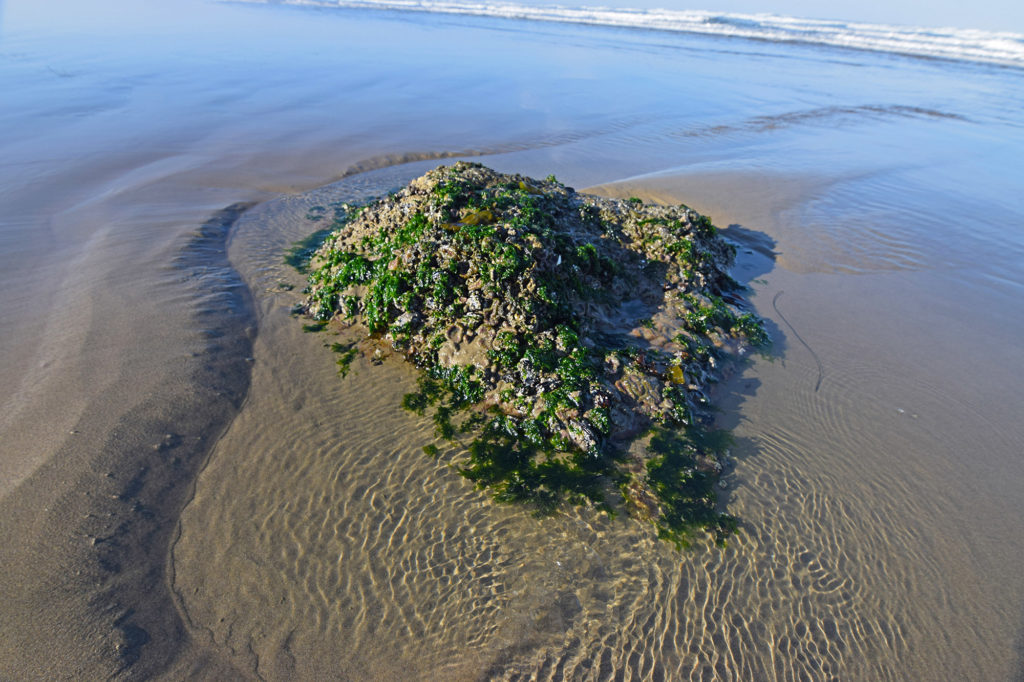
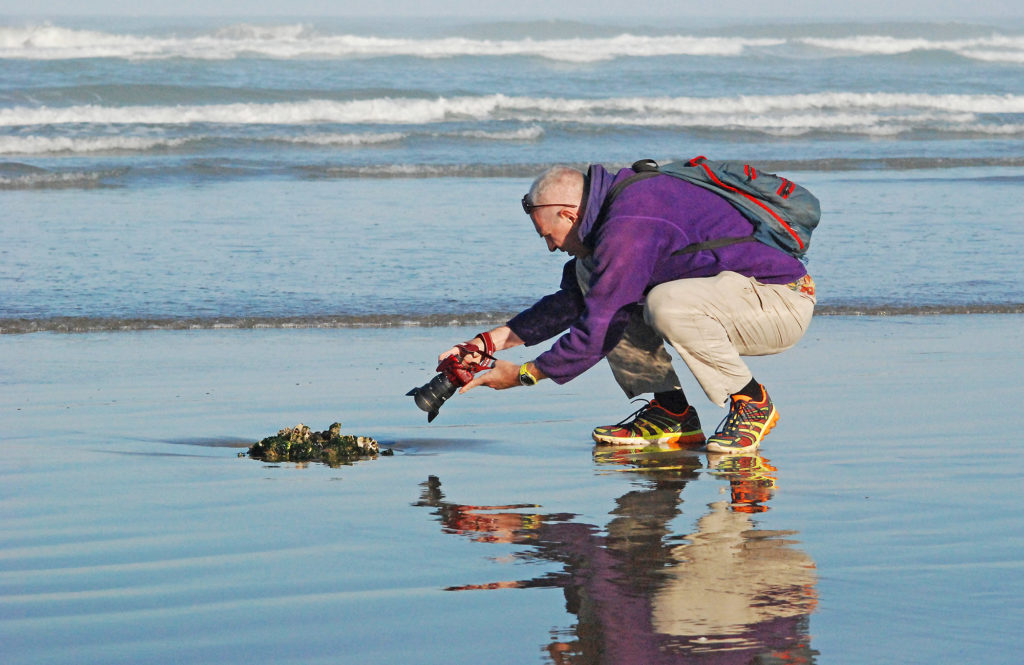
This gives you an idea of scale, Mark is taking a photo.
Exploration is investigating new phenomena, in this case, organisms on a micro (small) habitat, a rock that is exposed at low tide.
On the rock are numerous organisms. The next step is to accurately describe what is observed.
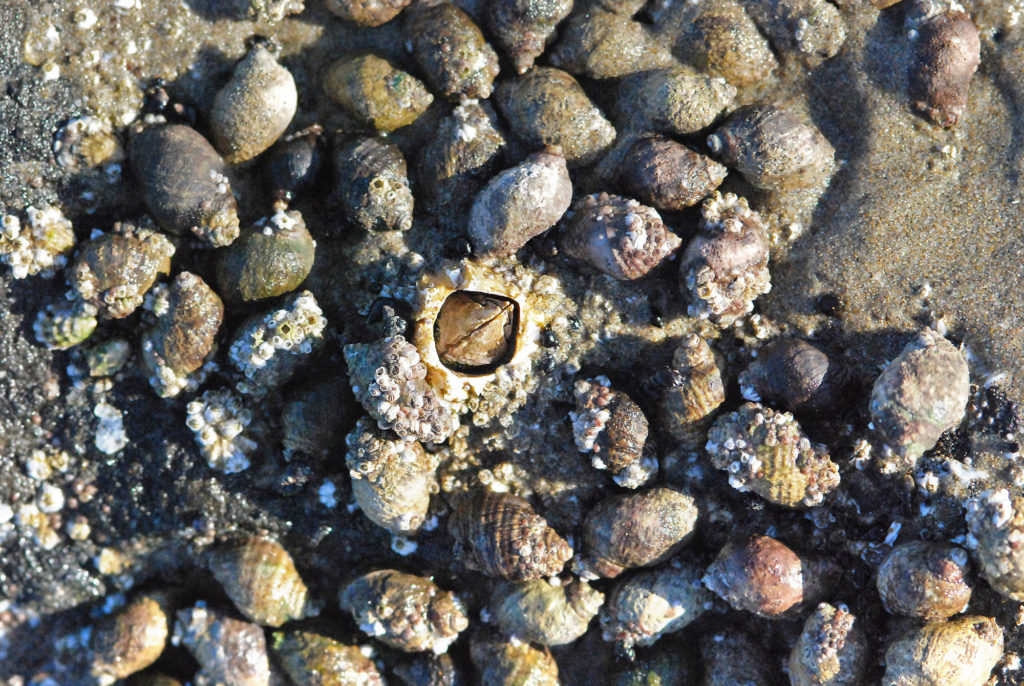
Barnacles
Some of the organisms are barnacles. There are small (less than one inch diameter) cone-shaped mineral structures with animals inside.
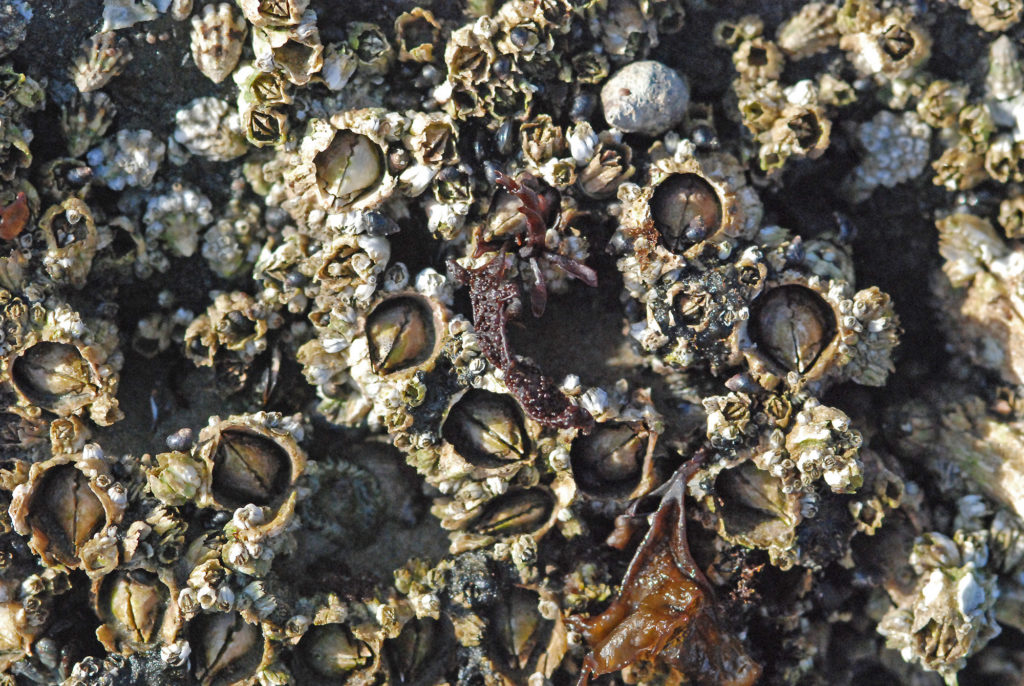
Different Species
The different shapes of the mineral cones, different sizes, and groupings suggest that there may be two or more different species on the rock.
The next step is to explain what you are describing.
There is a lot to explain. For example:
-
How do two species of barnacles coexist on the same rock? (more on this in a later section on competition)
-
Where did the barnacles come from, not just these organisms (later section on reproduction), but also the species themselves (section on speciation).
Explanation may take more detailed examination and description, for example, viewing the barnacles underwater. Experimentation may be necessary to determine whether explanations accurately predict what is occurring in nature.

Patterns are repetitive occurrences that occur in nature.
In science discovery; people find, describe, and try to explain these patterns.
This video describes how important pattern recognition is in studying nature.

Check your knowledge. Can you:
-
define science and provide examples of science fields?
-
provide examples of the components of science discovery: exploration, description, and explanation?
-
explain what a pattern is in nature and provide an example?